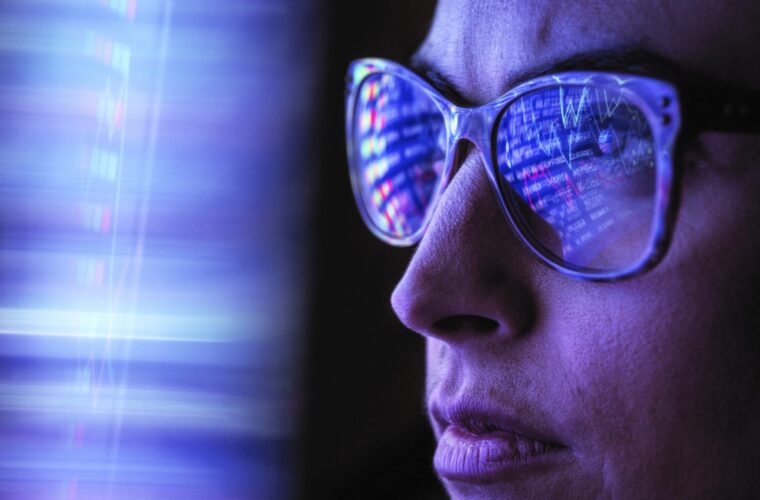By Abigail Batey*
UEFA Women’s Champions League is embracing the technological revolution, boosting the player performance and matchday experience through data-driven training tools and immersive fan technology.
Decision-making on the pitch has significantly improved with the expanded use of the Video Assistant Referee (VAR) system in the Women’s Champion League. Before VAR was introduced to the women’s game, the last eight teams of the league would move their matches to their main club stadiums, where the system was already in place for the men’s game due to the mandatory use of VAR for all club matches.
In 2018, it was announced that VAR would be introduced from the quarterfinal stage onward for the 2019-2020 season. VAR helps officials review crucial moments such as goals, penalties, and red cards using instant replay video analysis. To ensure consistency, UEFA has installed VAR in stadiums without the necessary infrastructure, guaranteeing fair and accurate decisions at every venue.
UEFA Women’s Champions League
The introduction of VAR technology in the Women’s Champions League has significantly enhanced the accuracy of officiating decisions. Starting from the 2021–22 season quarterfinals, VAR assisted referees in making precise calls during critical match moments.
For example, during the 2021–22 semi-final between Paris Saint-Germain and Olympique Lyonnais, a handball incident in the penalty area was reviewed by VAR. The technology confirmed the referee’s decision not to award a penalty, ensuring the game’s fairness and maintaining the match’s integrity.
These executions showcase how VAR has significantly upheld the credibility of the UEFA Women’s Champions League by assisting referees in making accurate decisions during pivotal moments.

Regarding training, clubs like Arsenal wear WHOOP fitness trackers to gather insights into the players’ health, fitness, and recovery. WHOOP is a band that the players wear on their wrists that measures heart rate, respiratory rate, blood oxygen levels, and skin temperature during their training. The data gathered from this equipment allows the coaches to tailor their sessions to prevent injuries and optimise player conditioning to ensure the athletes perform at their peak.
Moreover, technology isn’t just evolving the game for players and coaches; it’s revolutionising the fan experience. UEFA has partnered with major streaming platforms such as Paramount Plus, TNT Sports and DAZN, which offer multi-angle camera views, augmented reality (AR) stats, and interactive match analysis during a match. This allows fans to access real-time player data during live broadcasts, allowing them to dive deeper into the tactical and technological side of a game. With UEFA Women’s Champions League available on TNT Sports and DAZN, supporters worldwide have unprecedented access to high-quality streaming and in-depth match insights.
UEFA official App
UEFA Women’s Champions League is embracing cutting-edge technology to enhance fan engagement and go beyond the pitch. Furthermore, UEFA has an official app that is partnered with DAZN and YouTube, which offers live match streams, real-time stats, and interactive features like voting for Goal of the Week. While VR experiences are still emerging in women’s football, the league wants to keep fans connected by exploring new AI tools to deliver personalised content and chatbots. The tournament is trying to create a more immersive and interactive experience to bring supporters closer to the action than ever before.
As technology becomes increasingly immersed in training regimes and matchday operations, UEFA Women’s Champions League sets new standards in football. These advancements have not only developed the competition but also highlighted the growing investment in women’s sports.
With each season, the integration of technology and football becomes more dynamic. This is a clear sign that the game’s future looks brighter, faster, and more technological than ever.
*Abigail Batey is a third-year university student studying Sports Journalism at Solent University. She has a strong passion for sports media and enjoys combining her journalistic skills with her enthusiasm for sports to inform and create content and articles.




